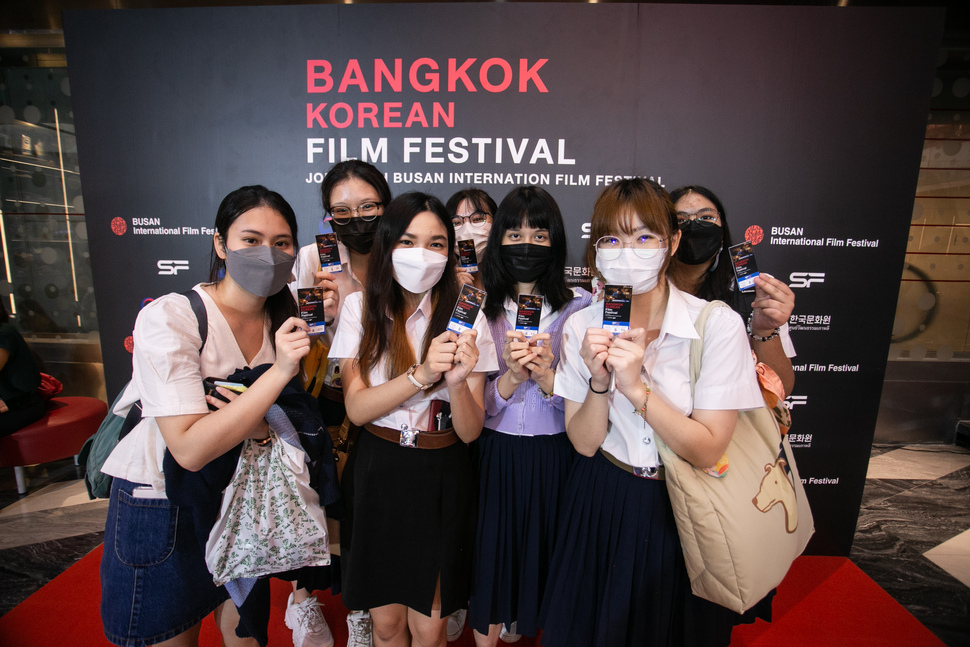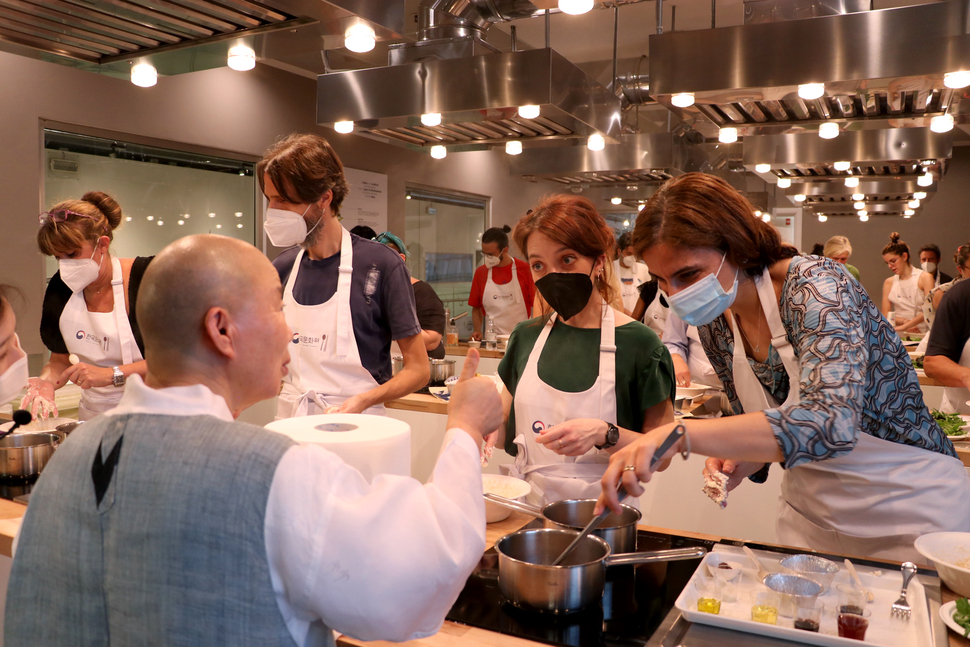[Nov] Cultural Centers help spread Hallyu around the world
Date Nov 25, 2022
 Bangkok Korean Film Festival participants in Thailand’s capital, October 7 (Courtesy of Korean Cultural Center Bangkok)
Bangkok Korean Film Festival participants in Thailand’s capital, October 7 (Courtesy of Korean Cultural Center Bangkok)
The growth of Korean culture’s popularity around the world has spurred an increase in cultural exchanges. In the past, cultural programs typically introduced traditional aspects of Korea, such as food, taekwondo and Hanbok.
But Korea has much more to share now with an increasing array of acclaimed music and films added to the choices.
The Korean Culture and Information Service currently runs 33 Cultural Centers in 28 countries. These centers play a significant role in promoting exchanges. Each year, they organize and support events to help foreign nationals gain a better understanding of Korean culture.
The Korean Cultural Center India hosted its biggest festival, “Rang De Korea,” in October to commemorate the 10th anniversary of the center’s establishment. The event included K-pop performances, a Hanbok fashion show and a calligraphy experience.
The highlight of the festival gave visitors a glimpse of traditional music, dance and etiquette through a Korean wedding ceremony. Two Indian couples actually tied the knot attired in Hanbok in front of invited family and friends. Although modernized over time, several traditional wedding customs still thrive in Korea.
The Korean Cultural Center Thailand ran the Bangkok Korean Film Festival in conjunction with the Busan International Film Festival in October. The showings included the epic period film, “Hansan: Rising Dragon” and a livestreamed special interactive chat with its director and actors, including Byun Yo-han and Kim Sung-kyu.
The center also holds competitions for global Hanbok models, a K-pop cover dance festival, a taekwondo contest and a K-webtoon exhibition.
 Buddhist monk Jeongkwan, left, encourages Italian participants at a temple food cooking class in Rome, July 21. (Courtesy of Korean Culture Center Roma)
Buddhist monk Jeongkwan, left, encourages Italian participants at a temple food cooking class in Rome, July 21. (Courtesy of Korean Culture Center Roma)
The Korean Cultural Center Germany held “K-pop World Festival 2022 – Berlin Audition” in July with 130 contestants from 43 teams competing for the top prize. Back after a two-year hiatus due to the COVID-19 pandemic, the event attracted 400 participants. The center also created a special experience zone where visitors could try out instruments from gugak (traditional Korean music) and try on Hanbok. The on-site K-café gave visitors the chance to taste Korean snacks and drinks as well.
Meanwhile, the Korean Cultural Center Roma, Italy, organized a workshop of temple cuisine led by Buddhist monk Jeongkwan, the temple food master who appeared in Netflix’s “Chef’s Table.”
She introduced temple food during cooking classes and explained barugongyang, a formal monastic meal which involves silently consuming vegetarian dishes without wasting a single grain of rice. This soul-searching experience offered participants an opportunity to reflect on the meaning of temple cuisine and learn about the beauty of nature.
The center also organizes various dance and music performances, as well as events like “Korean Film Week” and “Hangeul Calligraphy.”
**If you have any questions about this article, feel free to contact us at kocis@korea.kr.**

The Ministry of Culture, Sports and Tourism's "Korea Here & Now" work can be used under the condition of "Public Nuri Type 1 (Source Indication)."




